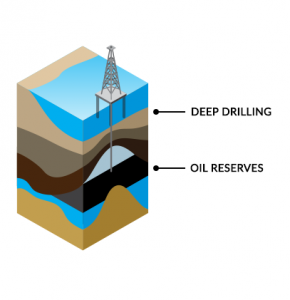All Categories
Featured
Table of Contents
Gravity Geophysical Survey Method in Forrestdale Western Australia 2021
This work is progressively contracted out, so consultancies offer another source of work. Consultancy firms differ in size, from extremely small companies to big multinationals. Some consultancies are rather specialised in using specific geophysical techniques or working in particular areas, while others provide a more varied series of services to their consumers.
The extraction of gas from land fill websites is another location of employment and this might grow in the future. Expedition business might undertake work for construction firms, water companies, mining business and ecological companies, so geophysicists may be used in any of these settings. Other employers include: geological surveysgovernment bodies and agenciesuniversities and research institutes.


Jobs may be noted in the oil and gas sector press. Recruitment is affected by oil price changes and the level of competitors for positions differs depending upon this. Professions Days, which cover the full variety of geoscience careers and are usually gone to by a number of essential industry employers, are run by The Geological Society.
Bachelor's Degree In Geophysics - Degrees & Programs in Walliston WA 2020
Some of the big oil and gas companies offer a complete two-year structured training programme across the breadth of geophysics, consisting of the opportunity to experience work in numerous groups prior to specialising in one area. Your training might consist of work on: existing wellsmagnetic and gravitational potential field information analysisresearchrock analysis. It's more normal for your preliminary training to be provided on the job.

There may be a probationary period during which you work along with an experienced coworker. Competency-based appraisals happen frequently in most firms. In smaller sized firms, and for scholastic posts, there is unlikely to be any formal training - you'll be anticipated to begin work straightaway and get skills as you go along.
If you work for a smaller sized business, you may discover that you need to take duty for organizing and funding your own development and training. If you have a geology degree, membership of The Geological Society can be helpful for networking and for keeping up to date with the market.
Geophysical Prospecting in Mundijong Oz 2021
You may also discover it useful to sign up with the PESGB (The Petroleum Expedition Society of Great Britain, which has a geophysics special interest group. After a probationary period, and once you've gained some experience, you might advance to senior geophysicist, then team leader and after that into a senior role in management.
The ease of motion in between functions depends upon the business structure. Study at Masters or Ph, D level in a subject related to geophysics or geosciences might aid with your career development and progression. The employment market within the oil and gas market is very based on price and this might affect your opportunities for profession development.
For experienced geophysicists, freelance consultancy uses an excellent path for profession advancement. As a geophysicist, you're likely to have numerous jobs throughout your working life.
Geophysical Surveying - Methods And Applications in Viveash Australia 2023
From geophysics, it's possible to focus on seismology (finishing more training to end up being a seismic interpreter) or to move into related areas such as engineering geology or hazard forecast.
Choosing what to study in college is a difficult choice. Even if you know that your field of interest lies in science, what program of research study is right for you?
The very first step to accomplishing your objective of becoming a geophysicist is earning a degree. Even for entry-level positions in the field of geoscience, you'll require a bachelor's degree (a geophysicist college degree) from a recognized college or university. Some research study positions need candidates to hold master's degrees or perhaps Ph.
Geophysical Survey in Bayswater Australia 2021
Doctoral degrees are especially crucial if you plan to teach at a four-year institution. Geophysicists use physics ideas and methods to study the gravitational, magnetic, and electrical fields of the earth. This enhances scientists' understanding of both the world's interior core and its surface. Geophysicists should be able to: evaluate rocks, photographs, and other pieces of information perform research both in the field and in laboratories develop maps and charts of their findings compose reports To accomplish all this, students require a specialized education for geophysicist professions.
As stated above, you'll require a bachelor's degree in geoscience or a related discipline, such as a physical science or a natural science, to land an entry-level job. Students can also prepare by majoring in subjects like: Biology Chemistry Computer system science Engineering Mathematics Physics The above geophysicist majors use a more generalized approach to a single scientific discipline, however the majority of programs need students to take one or more geology course.
Table of Contents
Latest Posts
Geophysical Survey - Mining Fundamentals in Mahogany Creek Aus 2023
How To Become A Geophysicist in South Fremantle Oz 2022
Field Geophysicist - Parsons Careers – Engineered Systems in Ballajura Aus 2021
More
Latest Posts
Geophysical Survey - Mining Fundamentals in Mahogany Creek Aus 2023
How To Become A Geophysicist in South Fremantle Oz 2022
Field Geophysicist - Parsons Careers – Engineered Systems in Ballajura Aus 2021